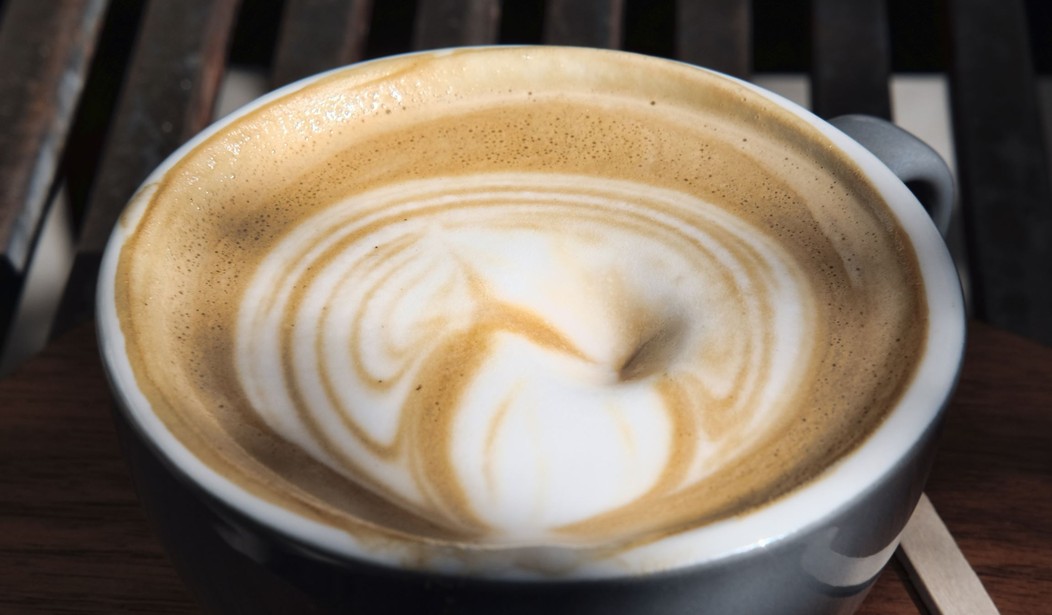With 400 billion cups drunk annually, coffee’s importance economically, culturally, and socially cannot be denied. Indeed, if oil greases the wheels of industrialized civilization, then coffee surely lubricates its living, breathing, moving parts.
I am a coffee drinker. By that, I mean that I like black coffee, the way that the Lord made the bean to be imbibed. Cappuccino, frappuccino, espresso, latte, matte, mocha, Irish, Turkish, French, or Lower Slobbovian varieties are poor substitutes for the nectar of the gods.
If you don't like the bitter taste, rather than adding poisonous sugar or infant's milk, don't drink it. Better yet, drink a soda or a wimpy drink such as tea if you need a morning jolt of energy.
(Criminy, lighten up, people. I'm not serious.)
The history of coffee is strange and wonderful. It may have been the last domesticated agricultural product. Poppies have been cultivated for at least 5,000 years. Marijuana even longer. It is amazing that the little bush, thought to have originated on the hillsides of Ethiopia, was not generally recognized for either its medicinal properties or the salutary effects the berries had on our constitutions until the Arabs began cultivating it sometime after 800.
The Arabs knew they had a good thing. They made it a crime punishable by death for transporting the bush outside of Arabia. It still appeared in India around the turn of the millennium.
Early coffee shops in Europe were places of both debauchery and intellectually stimulating conversations. English coffee shops hosted the finest minds of the pre-enlightenment, and can be credited in no small way with facilitating the spread of radical democratic ideas. Authorities tried several times to clamp down on these ideas by closing the coffee shops — as if one could stop a tidal wave by commanding the ocean to cease making waves.
Why all the fuss over coffee? To say, “It’s the caffeine, dummy,” is too pat, too simple. While addictive, caffeine is by all reports a mild stimulant, and not a danger to human health when taken in moderation. Of course, those of us who truly love coffee find nothing “moderate” about it. A pot in the morning with a taste in the afternoon and a satisfying after-dinner indulgence is a daily routine.
Now, as it turns out, drinking coffee is beneficial to the aging process, at least in women. A huge study presented earlier this week at the annual meeting of the American Society for Nutrition found that there may be a link between coffee and healthier aging.
Researchers followed more than 47,000 female nurses for several decades beginning in the 1970s. Every few years, they were asked to fill out a detailed questionnaire about their diets, including how much coffee, tea, and cola they typically drank.
Then the scientists looked at how many of these women survived until they were 70. The results were telling.
The researchers found a correlation between how much caffeine the women typically drank (which was mostly from coffee) when they were between 45 and 60 years old and their likelihood of healthy aging. After adjusting for other factors that could affect aging, such as their overall diet, how much they exercised and whether they smoked, those who consumed the most caffeine (equivalent to nearly seven eight-ounce cups of coffee per day) had odds of healthy aging that were 13 percent higher than those who consumed the least caffeine (equivalent to less than one cup per day).
Drinking tea or decaffeinated coffee was not associated with healthy aging, the researchers found. That may be because the study participants generally consumed less tea and decaffeinated coffee overall, so perhaps there were fewer chances for the researchers to find benefits linked to them, said Sara Mahdavi, an adjunct professor of nutritional sciences at the University of Toronto who led the study. Tea and decaf coffee also have less caffeine, and tea has different plant compounds from regular coffee, so that may explain the results, too, she added.
"Healthy aging" was defined as the absence of chronic disease such as "cancer, Type 2 diabetes, heart disease, kidney failure, Parkinson’s disease, and multiple sclerosis," reports The Times. The women also had no cognitive impairment or memory loss.
Although the study has not been peer-reviewed, the correlation between coffee drinking and healthy aging is striking. There are no similar results when women drank other caffeinated products, such as tea or cola.
"Research in other groups of people suggests that the health benefits of coffee may plateau or even dip when they drink more than three to four cups per day," reports The Times. I guess I'm NOT going to live forever.
For me, and I’m sure for many of you, the world would be a much different place without coffee. Poorer in spirit, I think. Less open, less interesting.
And, no doubt, a much sleepier world as well.
Help PJ Media continue to tell the truth about the Trump administration's accomplishments. Join PJ Media VIP and use promo code FIGHT to get 60% off your membership.










Join the conversation as a VIP Member